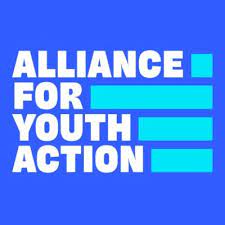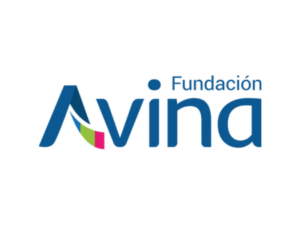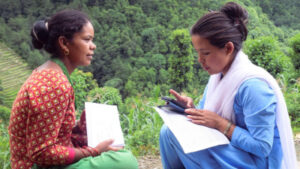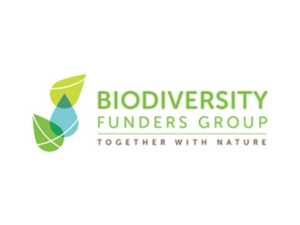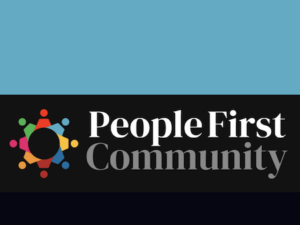The Alliance for Youth Organizing/ Alliance for Youth Action empowers young people’s organizations to strengthen democracy, fix the economy, and correct injustices through on-the-ground organizing. They support organizations, including university and college campus groups, to register voters, get out the vote, voter education, and by offering internships and fellowships.
Dakota Hall of Alliance for Youth Action spoke with Alec Saelens on January 4, 2024. Click here to read the full conversation with insights highlighted.
Alec Saelens: Hello, can you please introduce yourself, and describe the problem that you are addressing in your work, and how you’re responding to that problem.
Dakota Hall: My name is Dakota Hall. I use he/him pronouns. I’m the Executive Director of the Alliance for Youth Organizing. The problem I’m trying to solve is around the crisis and engagement with young people, and civic engagement and democracy, and ensuring that they have a voice and representation in the United States democracy. We also hope to inspire a global movement of youth organizers, building the world in which they want to live in, for the long-term.
I am helping solve that through our organization, the Alliance for Youth Organizing. We operate under three buckets of work that help field youth organizing and young people engaging into democracy, and as well as action. We help expand the ecosystem, and by that I mean we actively help scout and develop new organizations across the country, where there are not organizations. Helping identify young, energetic, charismatic leaders, who we believe can help change not only their local community, but the larger country, through building organizations that do year round engagement with young people, focusing on advocacy-based building of civic engagement, electoral stuff. We’re all over the place.
Another area that we work on is capacity building. Capacity building is for our affiliated network, which currently exists across 19 organizations in 18 different states, who get services from us to help build healthy, strong, resilient organizations, and really do hands-on coaching, hands-on work to ensure that they have mentorship, tutelage, et cetera, to maintain their organizations. The third and final bucket of our work is being a grant maker and funding an intermediary to the larger youth ecosystem. Ensuring that we’re able to raise national dollars from foundations and individuals, and help redistribute that to local organizers, to help fuel their work even more so.
Alec Saelens: Thanks for that comprehensive overview. If you could drill down a little bit more deeply, and you’ve touched on this already, who are the beneficiaries of your work, and how do they benefit from it?
Dakota Hall: Primarily the beneficiaries of our work are young people leading organizations across the country. I also would say primarily it is BIPOC-led organizations that are benefiting the most too. How do they benefit? We are able to give them large grants to build their programs and operations, and add to their budget. I would say on average, our grantee pool is pulling in probably a quarter million dollars from us, on average, if not more. We’re working to really make sure that they can hire staff, retain staff, invest in new tools for their organization. That’s a primary benefit that a lot of folks get from us, and that’s just direct cash from us. We also help identify new funders for them and help make those introductions. Even our assisted funding is a benefit for them.
Young leaders in charge, responsible for doing a lot of work, may need a friend to call on, or somebody who’s done the job before. That’s where our capacity really helps by making sure young leaders don’t feel isolated in what they are doing. They have a more significant, meaningful relationship and network of people that they can tap into. And we can help grow their skills and provide professional development that a lot of young leaders are yearning for.
Alec Saelens: What in the work of the Alliance for Youth Action is different from other types of system level support organizations? What makes your approach distinctive?
Dakota Hall: We operate as a federated model. That means that we’re not a top-down organization. We really listen, and are responsive to, the needs of our affiliates. They have a certain level of governing power and insight to our strategic priorities that they are allowed to vote on, help provide formal input on, and we take that feedback very seriously. For us, all the change that we’re trying to build starts locally. Homegrown leadership, I think, is how we’re going to get out of a lot of the problems that we’re in. We take that into our governance model. It’s not just a value, but a practice, to ensure that these local organizations feel not only bought into what we’re doing, but have a voice in what we’re doing. That can also help change things if it’s going astray.
Alec Saelens: Could you give an example of the types of decision-making that you are making, with that federated model in mind?
Dakota Hall: One of the decision-making powers that our network has is they have complete oversight over our national campaigns. At any moment they can vote to end a campaign, or start a campaign, which is really major for I think national organizations not to take control of that. The way in which we build campaigns is directly through the work that’s happening on the ground. If they feel like the work is no longer reflective of that, they have the sole authority to vote to end that. That’s just one example of where that power comes from, and why I think our network is so special. You’re not going to find another network that puts the full autonomy of campaigns being built out, and the messaging there, to local leaders.
Alec Saelens: How do you measure the success of the work that you’re doing, and what is the evidence that you’re making progress, with the approach that you’re taking?
Dakota Hall: Everything from the amount of new leaders that we’re developing, staff retention, bills being passed. Right? Having pro-democracy bills being passed is a great sign of achievement. Whether that is opening up ballots in multiple languages, whether that’s adding polling locations to college campuses. If you have a dorm of 15,000 people, why wouldn’t there be a ballot box right there, to put down your ballot? It’s about how we are able to advocate to move the levers of government to benefit people. That could look like we’ve been successful throughout our network of reallocating money in county, and city, and statewide budgets, to go into young people priorities, whether that’s mental health advocates, whether that’s a more affordable college, stuff like that.
We’ve also been successful in advocating for programs for the incarcerated folks, who are currently suffering from incarceration, in terms of restoring some of their rights. Making sure that they have access to the ballot box. If they’re not charged with the felony, then they shouldn’t have their right to vote taken away from them. I mean, all that to me is evidence that social change is never going to be easy, nor is it going to come overnight, but you lay the groundwork for something that can come 10, 20, 30 years after you. I think it’s really, really meaningful for us.
Alec Saelens: One of the key challenges that organizations face is the challenge of raising sufficient funds for their work. Leaving funding aside for the time being, and you can elaborate on that subsequently, what are some of the other challenges that you have faced, or are currently facing?
Dakota Hall: There’s definitely an anti-democracy sentiment in this country right now. Even after the 2022 elections, one of the things that was a popular talking point was that we should raise the age of voting, because 18-year-olds shouldn’t be making decisions for this country. But they can go to war and all this other kind of stuff, right? Even that factor, in which people are actively trying to make it harder for young people to voice their opinions, they are making it more complicated to vote with student voter IDs. They’re trying to take away polling locations from college campuses. They’re trying to enact rhetoric and potentially laws about raising the voting age. To me, all of that points out the fact that we have an anti-democracy sentiment in this country. People are afraid of the social change that young Millennials and Gen Z are going to bring to this country. Because it’s going to uplift the social norms that have been the conditions for the last 60 years of this country, in which we’ve seen the post civil rights movement. It’s almost regressive, in a lot of ways, in terms of justice in this country. The way I see it is, they believe that this generation that we’re currently in, that are of voting age, are going to bring the end of much of the way of life that they’ve gotten used to. But that way of life has also been unequal and unjust.
Alec Saelens: Can you elaborate a little bit more? What are the ways in which young people are being self disenfranchised?
Dakota Hall: It’s not just within democracy in which young people are being repressed, it’s in the economic system too. You can see that the economic quality of life for this generation is probably one of the worst that we’ve seen in a while, in terms of being able to have an economy that is healthy. You can make an argument that the Gen Z generation, folks born around 2000, have never seen a good economy, in their lifetime, in terms of comprehending what an economy is. The oldest of Gen Z probably very vividly remember, for their parents, and their family members there. They go into Covid, where everybody’s mental health [is stressed], in terms of being locked in a house, and then the economy goes down. They’ve seen the wealth gap grow consistently. With that wealth gap growing, you’ve also seen the democracy gap growing, in terms of who has access to the ballot box, and how we are utilizing the government to keep wealth inequities present. How are we able to provide tax breaks for the billionaires consistently? How are we giving more tax breaks to Walmarts than mom-and-pop shops on main street in this country? I think young people are just at the end of the stick, when it comes to what we’ve seen built up for the last 20, 30 years now, in terms of a failing system that is all rooted in how democracy has failed people over, and over again.
Some of the ways in which I think young people are fighting back, they’ve taken to the ballot box significantly. 2018 saw record voter turnout for a midterm. 2020, record voter turnout for a presidential election. 2022, not record turnout, but still one of the highest marks ever that we’ve seen. It’s not that young people don’t care. Are the majority of young people voting? No, but more are getting engaged than what they were in 2012, or 2014, and I think even 2016. The fact that they’re willing to talk to more of their friends about voting, the fact that these rates have now stayed high for three major elections, I think shows that we’re going to see consistently high voter turnout among young people, because they care so deeply about these issues. They care about the wealth disparity in this country, they care about racial justice, they care about abortion, they care about the climate crisis that we’re in, and they’re not backing down.
I think everyone had a sentiment that, well young people are going to be energized and then they’re going to go away. I don’t think that’s the case anymore. I think young people are here to consistently be engaged, at a level that determines elections. I think that is the major turning point that we haven’t seen in this country, probably since civil rights times with Vietnam War era stuff. It’s a new awakening, and I think this country will realize the power and potential of the youth vote block, moving forward.
Alec Saelens: Can you share an example of the galvanizing process, or movement, that is happening on the ground? Maybe a strategy or a tactic that is being used by young people, fostered by your organization, that you’re seeing making a particular difference in terms of voter mobilization or youth mobilization?
Dakota Hall: Look at what happened in 2020 with abortion. Abortion wins outstandingly in a place like Kansas. For your average American, Kansas is not a blue state, a state that’s going to be for abortion. But young people helped organize that. They’ve gone to virtual tactics, like TikTok, and Snapchat. We do organizing and messaging outreach, and issue education. We went to places like Montana, as well. We see a bubbling movement down in Florida around abortion. We just won in Ohio. Many places that have been deemed politically red or conservative are actually winning on abortion. Young people absolutely have a big part in that, because what’s tied to these victories around abortion, and keeping abortion access for people in this country, is youth voter turnout being so high. That doesn’t happen in many of these places without that. Even though it wasn’t a ballot initiative, my home state of Wisconsin flipped, because of their Supreme Court, because the judge was talking about having a pro-abortion state. Right? That galvanized young people that have record turnout in a spring election. I would really say that abortion has been, I think, the wave in which young people have rode on, in terms of wanting to see this country be better, and having success around that.
Alec Saelens: Removing ourselves a bit from ground level here, what do you think is most needed from other actors that are in this space, or partners that you work with, to advance systems level change?
Dakota Hall: I do feel like everyone’s doing their part. I think what is most needed right now is developing a deeper bench of talent to help carry some of this work. It’s really heavy work. I’d say right now, everybody should be thinking about the next five, 10 years, and how we grow a talent pipeline on the progressive side that is trained and ready to go, to respond to crises that we could see. What’s stopping the next pandemic, and how are we going to ensure that the government is responsive, in a timely manner, where we don’t see tens of thousands, or hundreds of thousands people die, before we actually do something meaningful, overall. I think for me, it’s just about how we are putting together plans that are going to train the next generation of folks, that’s going to be the leaders that are in the seats that we’re in right now.
Alec Saelens: How do you see your organization contributing to that effort, in addition to the work that you’re already doing now? Are there any things that you’re looking forward to, in terms of capacity building, to help foster that new generation, build that skill set, amongst a larger swath of people?
Dakota Hall: Yeah, we have a new program that we’ve developed called The New Deal for Organizing, to train new, emerging, and current organizers, on some of the organizing basics that were implemented before the pandemic. It’s going to build a network of trainers that could be deployed to on the ground training. One thing that I think after the pandemic, it’s harder for people to travel, whether you had a pandemic baby, a pandemic puppy, whatever it is, that people changed their lives in the pandemic. They weren’t sure they were going to come outside, and now it’s harder for them to come outside and travel.
We want to bring the training to them in their state, and we’re developing the curriculum, and a network of trainers, that will have the ability to travel into your state to do a week-long training, to talk about our analysis, and what we’re trying to jointly build. That to me is very, very exciting, in terms of what we are hoping to do, and hoping to build, that hopefully gets to this, how do we get the young college student who’s like, “I’m interested in activism. I’ve attended a few protests on my campus, so I’ll learn more about this.” How do we get them to be one of the next Executive Directors of a civic organization, and thinking about a 10-year career path for them, in this work?
Alec Saelens: What are the insights or the teachable lessons that can be taken from the work that you’re doing? What do you think other people should know about the work that you do that could help others working in the field?
Dakota Hall: I tell people, the payoff is not always instant. By that I mean you could be working at something and you feel like you’re not moving the needle, but it doesn’t mean you’re actually not successful. Again, it goes back to system change, in a government this size, it’s going to take a while to see the effects of it. I point back to mass incarceration. When we had all the bills pop up in ’94, ’95, around investing into prisons, and policing, and the Bill Clinton crime bills. Yes, there was an immediate impact, but what you saw around 2010 was a bunch of different studies about mass incarceration, and how big of a problem it was. Right? You think about that trajectory even alone, that was 15 years, we saw later what happened there. One of the places that we saw it was Milwaukee, Wisconsin. 53206 was one of the most disproportionately impacted zip codes for incarceration. Wisconsin was highlighted for being the place that does the most mass incarceration of black men. You could draw that back to some of the investments that you saw, and the policies changed from the nineties.
Thinking about what we’re trying to build, the payoff is not going to be instant. Sometimes your flowers, your successes are not going to come, or you won’t see what happened there for a very long time. That’s okay, because at the end of the day, we’re still changing people’s lives, whether it’s immediate or long-term. I think that’s what we’re all in this work for. There’s some patience there. I think we’re often looking for the quickest win, and relief, because people are in such a crisis, which is still understandable, and that’s a win that we must play, and some people are going to stay in that lane. But also, we’re in 2024 right now. I often think about what this place looks like in 2030, 2040 in terms of a country. The long game is just as important too, I believe.
Alec Saelens: It does take time to bring about social change and social transformation. I appreciate your time, and your wisdom and insights in terms of how to bring about change and mobilize youth.
Click here to read the full conversation with insights highlighted.
Alec Saelens is a former journalist who supports SJN and its partners track solutions journalism’s impact on society and the industry. In his former role, he researched and consulted on the connection between solutions journalism and revenue. He is co-founder of The Bristol Cable, the UK’s pioneering local media cooperative. Before SJN, he was a researcher and coach for the Membership Puzzle Project and an analyst for NewsGuard.
* This interview has been edited and condensed.
Learn about more organizations that innovate solutions to mobilize youth.

